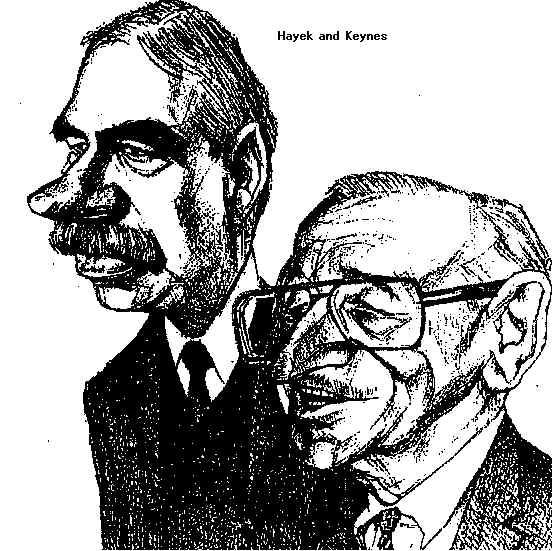Month: August 2011
Job markets in everything
It’s the economy, stupid! Drive players to invest in our game economy by analyzing the subtleties of behavioral economics and pondering the pitfalls of specialization and free trade. Theorize why people make irrational economic choices and use the tricks you’ve learned to ensure players only make the irrational choices you want them to. Create an economic system that will fulfill a player’s needs just as much as shooting an alien in the face.
The Economy Designer at Bungie will develop a robust and rewarding game economy that drives player behavior toward intended goals and validate those systems through intense simulation, testing and iteration. You’ll design the systems and mechanics which drive in-game trade, satisfy the players’ need for possessions and wealth whilst ensuring rewards retain their intended value despite attempts to exploit or grief the system. You will determine what data is necessary to mine, ensure we have all of the hooks necessary to gather that data, and come up with all of the interesting metrics and questions we should ask of that data. You will run simulations of these mechanics based on expected player behavior and test these simulated results against actual player behavior; tuning the live system accordingly.
Assorted links
1. Nepotism in Italian academia.
2. I liberate books, he imprisons them. Who is the greater lover?
3. Chile’s budget rules, by Edwin Dolan, still one of the most underrated econ bloggers.
Keynes v. Hayek Debate
The Keynes v. Hayek BBC debate at the LSE which pits Lord Robert Skidelsky and Duncan Weldon arguing for Keynes against George Selgin and Jamie Whyte arguing for Hayek is now available in an online podcast.
On the Debt Deal and the unBBA
TIME has five economists react to the debt deal, Mohamed El-Erian, Douglas Holtz-Eakin, Simon Johnson, Stephen S. Roach and yours truly.
Holtz-Eakin really works his apocalyptic imagery:
The river of entitlement red ink courses through a broken budgetary landscape. America is borrowing $58,000 every second—more than the median income of its households—and the gross debt already exceeds the level (90% of gross domestic product) that has historically been seen as toying with danger. Even worse, the federal debt promises to explode in the next decade, which will surely result in a Greece-style debt crisis. Erskine Bowles, co-chair of the President’s fiscal reform commission has called it the “most predictable crisis in history.”
When the crisis inevitably arises, the painful memories of 2008—panic; no credit; monthly job losses in the hundreds of thousands; Main Street businesses shuttering their windows and closing their doors; highly-qualified college graduates despairing of ever finding real work—will seem quaint and mild by comparison.
Stephen S. Roach wonders what will happen as China rebalances.
For China, the fiscal crisis and Great Recession was a wake-up call — a signal to rebalance away from unsustainable external demand toward untapped internal consumption. Such efforts now appear to be underway. And that’s where it comes full circle. China, the world’s biggest surplus saver, gets it. It will now save less and consume more. Conversely, the United States, with world’s biggest savings deficit, doesn’t get it. At least, that’s the message to take from the disappointing outcome of the debt ceiling debate.
…Absent the Chinese buyer of Treasuries, who will step up and fill the void? And on what terms? That latter point is key. With increasingly skittish foreign lenders now likely to require concessions in the form of a weaker dollar and higher U.S. interest rates, there will be new pressures on U.S. inflation and growth.
The timing of Roach’s comments are odd since interest rates are falling madly. On the other hand, the Chinese credit rating agency did just downgrade US debt.
I discuss the virtues of an unbalanced budget amendment. I won’t repeat what I wrote earlier but here are a few added remarks:
The idea of an unbalanced budget amendment is not new. Sweden’s government has been required since 2000 to budget for a 1% surplus over the business cycle. Since implementing their unBBA, Sweden has successfully brought their budget into balance and created a surplus.
Even more ancient sources are supportive of an unBBA. In the Bible, Joseph doesn’t advise the Pharaoh to balance the budget instead he tells the Pharaoh, save during the seven fat years so you are prepared for the seven lean. An unbalanced budget amendment reflects this simple and ancient wisdom.
For more, Ed Dolan has a good post on Sweden’s fiscal rules. See also this IMF paper for an extensive look at fiscal rules around the world. A hat tip to Ennuigogo.
Getting out of the euro?
Nick Rowe writes:
Eurozone governments and banks that cannot pay their obligations in Euros may end up paying their obligations in a scrip that is not pegged to the Euro. A scrip issued by each national government that is worth whatever people think it is worth. And if people start using that scrip as a medium of exchange, and medium of account, it becomes a new money. Sure, Greek supermarkets might prefer payment in Euros, but if their customers can only pay in New Drachmas, then it’s either accept New Drachmas or let the vegetables rot on the shelves. And the supermarkets’ suppliers might prefer payment in Euros, but it’s either accept New Drachmas or let the vegetables rot in the fields. And the workers picking the vegetables might prefer payment in Euros, but it’s either accept New Drachmas or nothing….
But how exactly does a government scrap the old money? It’s not as obvious as it sounds. How can it stop people measuring prices in “old” dollars, and using old dollars for their shopping? (It’s easier in the case of hyperinflation, when the old money is already heading for extinction anyway).
First, the government starts doing its own shopping in New Dollars. The government is a big shopper. Just as we tend to use the same language as those around us are using, so we tend to use the same money as those around us are using.
Second, the government stops enforcing new contracts requiring payment in old dollars, and lets old contracts be paid in New Dollars.
Third, the government stops making change in old dollars. The reason a $20 bill is worth two $10 bills is that the central bank is willing to convert one into the other. And that mutual convertibility makes $20 bills and $10 bills fungible and easy to use as money.
Fourth, as a final resort, stop enforcing laws against counterfeiting old dollars.
I haven’t seen a better idea, but does this address my two main concerns? The first is that, as the transition occurs, there is no credible promise not to confiscate euro-based bank accounts. So the banking system collapses due to runs.
The second is that is takes a few months to produce the scrip and in the meantime the banks are collapsed, and even if nationalized the government can’t make good on all the deposits. Now the government stands up and tries to push its new, crummier currency. Eh (Girton and Roper 1981). Alternatively, the government could confiscate the euro deposits when it nationalizes the banks, and turn them into drachmas, in which case the “scrip” is already there in the banks. But in the short run there is no new currency, the banks are iffy, and even Argentina has never tried something that extreme.
Imagine having a severe shortfall of both banks and currency for a few months. How much would gdp fall? At least thirty percent? How much could foreign banks and abstract loan credits step in to fill the gap? How quickly would such an economy bounce back? I don’t know. It seems to me that all transition paths lead to that outcome, one way or another. Maybe it’s worth it in the longer haul, but you can see why many people believe there is no path out of the eurozone.
If it happens, it will be through markets forcing this solution upon periphery governments, through silent bank runs, rather than the governments deliberately opting to leave the eurozone. Can you imagine a Prime Minister voluntarily accepting a gdp drop of thirty percent over the next six months?
Addendum: Here is a good update on the silent bank runs.
Ukraine Modigliani-Miller tax arbitrage
Today I received some tax saving wisdom from a taxi driver in Ukraine. He told me that people who import cars to Ukraine sometimes cut the car in two separate pieces and carry it through the customs this way. By doing this, they save a fortune on import tax. A car carried in two pieces is seen as spare parts and therefore is taxed at a much lower rate than a normal car.
When in Ukraine, the car is welded back into one piece. After that, it’s usually sold locally at a good price. I looked through forums and apparently this is a common practise in developing countries, particularly in post-Soviet states such as Ukraine.
The full story, with more pictures, is here. For the pointer I thank Joe C.
Jack Goldstone is now blogging
*The* Jack Goldstone, who by the way is a colleague at GMU. Find his posts here.
Sentences to ponder
Older Americans do not intend to ruin America, but as a group, that’s what they’re about.
That is from Bob Samuelson, from a while ago, here is more.
Carrying costs, liquidity premia — you tell me
Assorted links
1. Netflix revenue vs. Blockbuster revenue, graph, sorry folks it is in nominal terms!
2. Is government about the supply of public goods?
3. “It is a science fair project, but it turned out very well for me.” And he has a blog, good post on the Apollo program.
5. How is China doing as an innovator?
6. Profitable biases of NBA referees; interesting hypothesis, although I am not convinced the referees are the active factor.
New Wireless Technologies: LIFI and DIDO
Two new wireless technologies were unveiled to the public in the last few weeks. Harald Haas, speaking at TED Global, demonstrated wireless through LED lighting–basically fiber optics without the fiber. The Haas demonstration is impressive and the technology appears to be close to market for local operations, such as a building, although it is unclear to me how the signal is intended to reach the socket over distance (broadband over power lines has proven difficult to implement). Here is Haas at TED:
Meanwhile Steve Perlman of Rearden Labs (yes, that Rearden) says his new DIDO technology breaks Shannon’s Law by at least 100 times–do note that these are fighting words, it isn’t called a law for nothing. What appears to be most impressive about the Perlman technology is that it is capable of being used over significant distances. We have yet to see a demonstration at large scale, however.
Business Week has a puffy but still fascinating profile of Perlman which includes this bit:
…his parents were both physicians, and they denied him an Apple II computer. They feared he would spend all day playing video games on the blasted machine—and they were right. “I was forced to build my own computer and create a graphics display for it and then write video games that I could play,” Perlman says….
Perlman would use this self-taught ability to understand electronics and computers as a way of getting out of jams. During his senior year in high school, he skipped so many classes that he was in danger of not graduating. So he built an illuminated marquee for the drama department to secure an English credit. Then he designed a computer simulation of the forces behind swings in the U.S. economy during the 19th century for a history credit. Later, while attending Columbia University, Perlman says he took a computer-programming class and taught himself Pascal during the open-book, midterm exam.
Is the future of the European periphery a bright one?
Hugo, a loyal MR reader, asks:
…based on this sentence: “I am pessimistic about the survival of the full eurozone, which is not the same as being pessimistic about Europe”
What’s the non-pessimistic, post-Eurozone scenario?
Wouldn’t that leave Greece and Portugal and maybe a couple of others as the Euro equivalent of the US Rust Belt, but with no federal support & much-reduced ability for people in those countries to migrate to areas where there is job growth?
Greece has made very good progress on cutting spending and limiting patronage (where is the Cato study?), although the whole package probably can’t work in such a deflationary environment, not to mention the riots in the streets. They’ll probably have to give back at least a third of what they have done on the reform side, but a lot of inefficiency has been rooted out for good. The country doesn’t have to have a miserable future, just look at recent Turkish growth. Of course Greece needs to default (again, and less selectively) and that will require in the short run yet more spending austerity because the borrowing still is financing their current budget.
Portugal made significant economic gains before joining the eurozone. Its manufacturing probably won’t come back but old people like the place and that will continue to help them as Europe ages. They can sell real estate and vacations and produce services and a bit of agriculture. Neither Greece nor Portugal faces much risk from Chinese or Asian competition; those “Rustbelt” problems lie largely in the past and have already hit them and been absorbed.
EU subsidies are not the path to wealth and in part they lock those economies into low-productivity growth ag. sectors; that’s a mixed blessing. And who says a eurozone implosion would cause those subsidies to go away? Northern Europe already has allocated that money and perhaps wishes to retain influence over their neighbors, maybe all the more in a volatile environment.
Portugal is not reaping major gains from the right of its citizens to migrate to Germany and besides maybe that won’t go away. Schengen could fail and Germany still might prefer Portuguese immigrants to the relevant alternatives.
Currency depreciations of 40 percent or more won’t hurt Portugal or Greece!
By no means am I an extreme optimist about these countries, but I think they will do OK, at least once they get past the short run. Why shouldn’t they? Human capital levels are not superlative but they are entirely acceptable for mid-level European existence and the climate is superb in both places. All they have to do is wave a magic wand and imagine themselves outside the eurozone, and outside their current fiscal shortfalls, just don’t ask me how they get there.
Sentences to ponder
… in America’s system of gridlock-based government priority is now on buck passing rather than achieving policy goals. Democrats are putting a higher priority on a desire to get Republicans to vote for tax increases than they are on a desire to have taxes be higher. Republicans, conversely, are trying to avoid voting for tax increases rather than trying to prevent tax increases from taking place.
That is from Matt. I wonder what underlying model of politics this is evidence for. Could it be that the real rewards from office holding come from one’s interest groups, later on? But why is the reward so closely tied to measures of loyalty rather than actual results? Are the external interest groups such poor monitors? If so, that would help explain why the observed Beckerian political bargains are so inefficient and so subject to polarized bickering.
I agree with this post of Matt’s too, 2008 was worse than we had thought. Now let’s apply some (finite) backward induction. How about 2007? Was that year worse than we thought? 2006 anyone? I think of 2008 and 2009 as when the crumminess of some of the preceding years was revealed as common knowledge. The real mistakes of the Commerce Dept. were about the previous years and that is only beginning to sink in.
Philip Tetlock requests your help
He is one of the most important social scientists working today, and he requests that I post this appeal:
Prediction markets can harness the “wisdom of crowds” to solve problems, develop products, and make forecasts. These systems typically treat collective intelligence as a commodity to be mined, not a resource that can be grown and improved. That’s about to change.
Starting in mid-2011, five teams will compete in a U.S.-government-sponsored forecasting tournament. Each team will develop its own tools for harnessing and improving collective intelligence and will be judged on how well its forecasters predict major trends and events around the world over the next four years.
The Good Judgment Team, based in the University of Pennsylvania and the University of California Berkeley, will be one of the five teams competing – and we’d like you to consider joining our team as a forecaster. If you’re willing to experiment with ways to improve your forecasting ability and if being part of cutting-edge scientific research appeals to you, then we want your help.
We can promise you the chance to: (1) learn about yourself (your skill in predicting – and your skill in becoming more accurate over time as you learn from feedback and/or special training exercises); (2) contribute to cutting-edge scientific work on both individual-level factors that promote or inhibit accuracy and group- or team-level factors that contribute to accuracy; and (3) help us distinguish better from worse approaches to generating forecasts of importance to national security, global affairs, and economics.
There is more at the link and they even offer a small honorarium.
A negative technology shock for JOE
Job Openings for Economists has been published only electronically for the past decade. Starting with the August 2011 issue, the Association resumes publishing JOE in print format, in order to ensure compliance with Department of Labor regulations for obtaining work visas for non-citizen economists.


